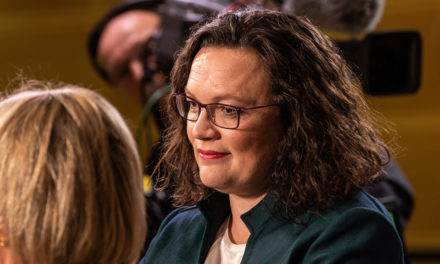New national family justice strategy to look at reform of family justice systems
Change is coming to family law courts and the sooner the better for children at risk, a conference held over the summer heard.
A risk assessment should be carried out on the dangers of allowing children to have contact with an abusive parent, said Dr Stephanie Holt, Assoc. Professor at TCD, speaking at the ‘Building a Family Law System for Children’ conference held on June 2.
“Children have a right to end an abusive relationship,” she told attendees at the event, which was organised by One Family.*
At present, she said professionals often ignore a past pattern of domestic violence when deciding whether to grant contact. However, Holt wants the legal system to take account of past abusive history as being relevant in assessing if there is a risk to children.
“Child safety and interests cannot be realised in a system that doesn’t identify the risks,” she said, speaking on June 2nd.
She said the family justice system in Ireland is currently characterised by a “dangerous combination of invisible risks and invisible rights,” for children.
• Dr. Stephanie Holt speaking at One Family’s conference ‘Building a Family Law System for Children’.
One Family’s conference heard from national and international experts with panellists from the Department of Justice, the Courts Service, academia from the Britian and Ireland and a High Court Judge from Northern Ireland.
Change is coming
Guest speaker Liam Coen, assistant principal officer at the Department of Justice, said change is coming.

• Liam Coen, Department of Justice.
The Department ran a public consultation survey on the future of family justice and it plans to consult with children and young people separately.
They are collaborating with the Department of Children to develop a process for doing that, said Coen.
“We will, as you can imagine, have a huge amount of information through our consultation process to analyse and reflect on,” he said, speaking at the online conference.
He said the Department will establish advisory groups to analyse that information and feed into the Family Justice Oversight Group and the reform process.
Towards the end of this year they will begin to draft a new national family justice strategy.
They will look at the reform of family justice systems that have taken place in other jurisdictions while also examining scope for reform in the Irish context.
“It’s a really exciting piece of work,” said Coen.
The Family Court Bill, the general scheme of which was published in 2020, will establish special family courts at the district court and circuit court and high court level, with specialist training for dedicated judges.
The aim is to “try and improve the experience, overall, for families seeking to access justice,” said Coen.
It is not yet known when the bill will be published, he said.
• Liam Coen, Principal Officer, Civil Justice Policy, Department of Justice, speaking at One Family’s conference ‘Building a Family Law System for Children’.
What’s it like Being a child?
Holt said the new family courts need to look at what it is like to be a child and live with domestic violence, saying it has a serious impact on children.
“They see it, they hear it, they experience the aftermath,” she said.
She said she found through her research that often the violent parent who rigorously pursues contact with the children, then doesn’t actually participate in that contact once it is granted.
That calls into question whether the desire for contact was real in the first place, said Holt.
“The initiation of contact proceedings is often merely a tactic used by the abuser to continue the harassment and control over women and children,” she said.
The family law courts should move away from focussing on the adult’s right to contact. The objective should be “children’s rights to safety, voice and agency,” she said.
ADDITIONAL REPORTING BY ALLEN MEAGHER:
Speaking at the conference, Karen Kiernan, CEO of One Family, said, “We know from our work with families that they are often traumatised from going through the adversarial family courts and this can cause long-lasting damage to children.”
“We strongly advocate for a Family Law Service Model to be developed alongside the new legislation to provide assessments, safety and family supports to families before and during court. When families separate or have issues that need to be agreed, the first responder shouldn’t be a solicitor. Instead, child-focussed, affordable supports should be available locally”, she said.
• Karen Kiernan, CEO of One Family, speaking at One Family’s conference ‘Building a Family Law System for Children’.
Emer Darcy, Head of Family Law Reform at The Irish Courts Service said, “The Courts Service is looking forward to continuing to collaborate with One Family as we progress with our Modernisation Programme to deliver better outcomes for all our users including children and families.”
The full panel of speakers at the 2021 event were:
- Dr Stephanie Holt, Associate Professor, TCD.
- Emer Darcy, Head of Family Law Reform, the Irish Court Service.
- Dr Jan Ewing, Impact Fellow, Creating Paths to Family Justice, Law School, University of Exeter.
- Liam Coen, Principal Officer, Civil Justice Policy, Dept. of Justice.
- Karen Kiernan, CEO, One Family.
- Mrs Justice Keegan, a high court judge in Northern Ireland.
One Family has now held two webinars focused on family law reform in Ireland. The first can be viewed here: https://onefamily.ie/family-law-conference/
“We want to focus attention on the most vulnerable court users – children,” said One Family.
For more from Laoise Neylon on this subject read:
Children are sometimes at risk through contact visits with violent parents





